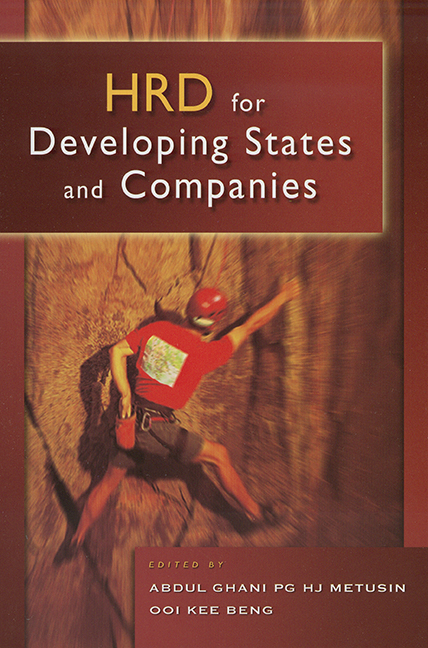Editorial Remarks
Published online by Cambridge University Press: 21 October 2015
Summary
One of the main themes of the convention on which the chapters of this book are based was the connection between state governance and business management. To do justice to this gravely important relationship, we have therefore chosen to divide the volume basically into two sections. The first and shorter one deals mainly with human resource development (HRD) as a political undertaking. In essence, this amounts to a collection of advice for statesmen. The tone setter here is Tun Dr Mahathir Mohamad'spresentation of how culture, skills, and development are interconnected, and how serious change must involve serious cultural innovations.
The second section — which deals with HRD as a central concern in national and international companies — is subdivided into three parts. The first part deals with various elements that make up strategic thought in HRD, the second concentrates on discussions and practical plans for the development of competence in corporations, while the third consists of descriptions of HRD experiences in the corporate world.
Some chapters are in effect rapporteur notes made during the convention, which have then been complemented with information from electronic slide presentations. It is hoped that we have managed to capture the general essence of all the talks given at the convention. All presentations, excepting one omitted in accordance with the speaker'semployer policy, are included here to provide as comprehensive an idea as possible of the range of topics discussed at the convention.
- Type
- Chapter
- Information
- HRD for Developing States & Companies , pp. xii - xiiiPublisher: ISEAS–Yusof Ishak InstitutePrint publication year: 2005



